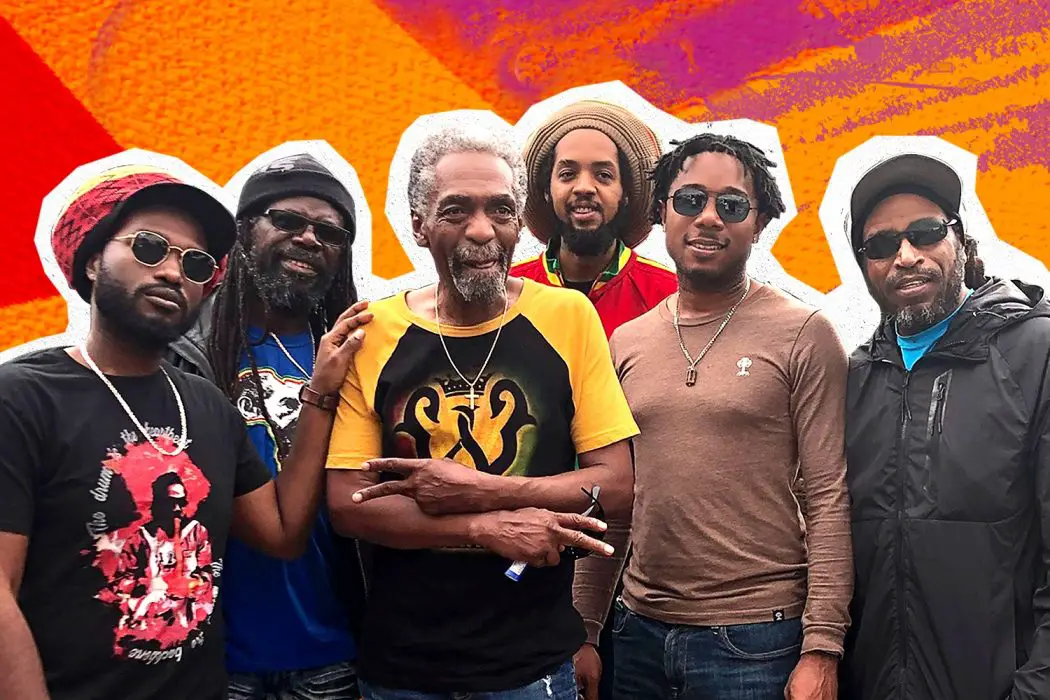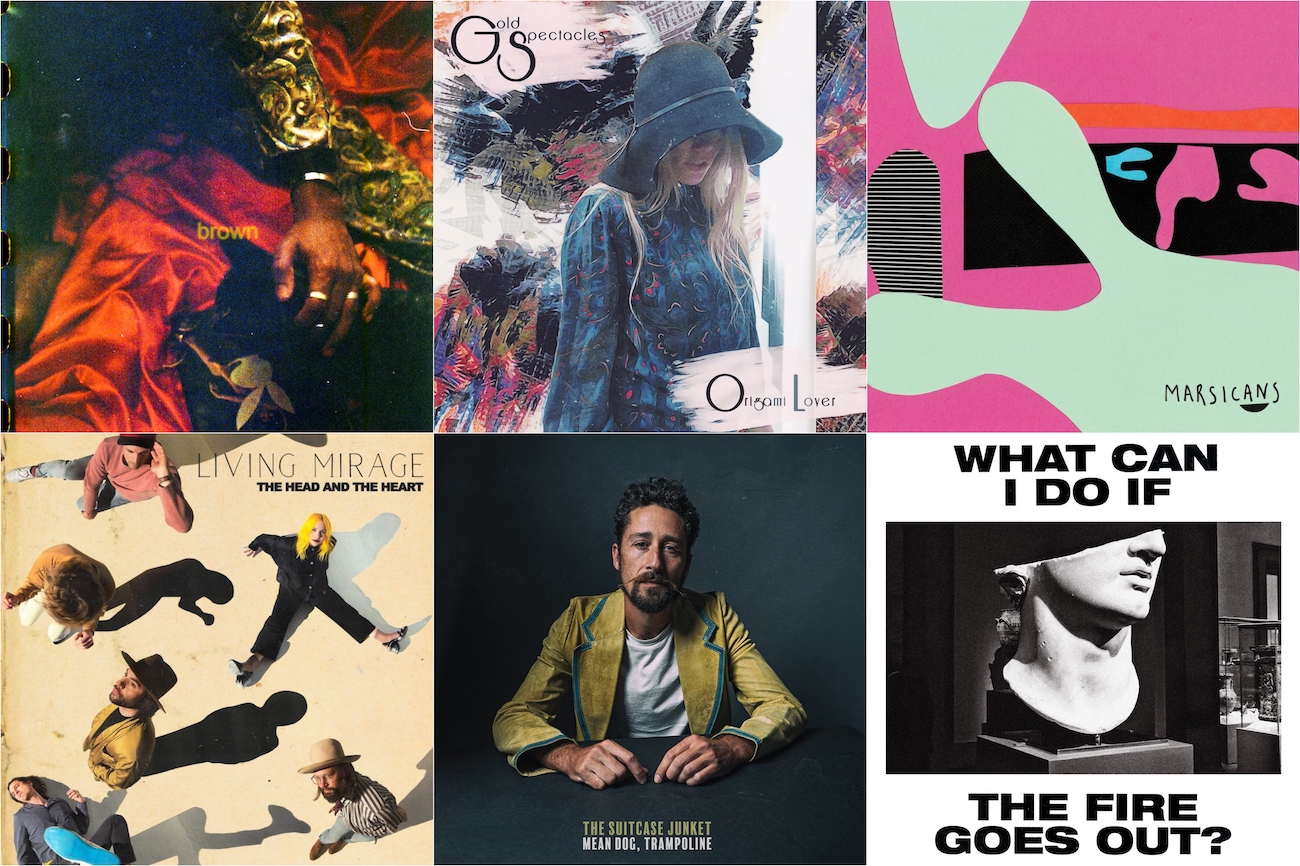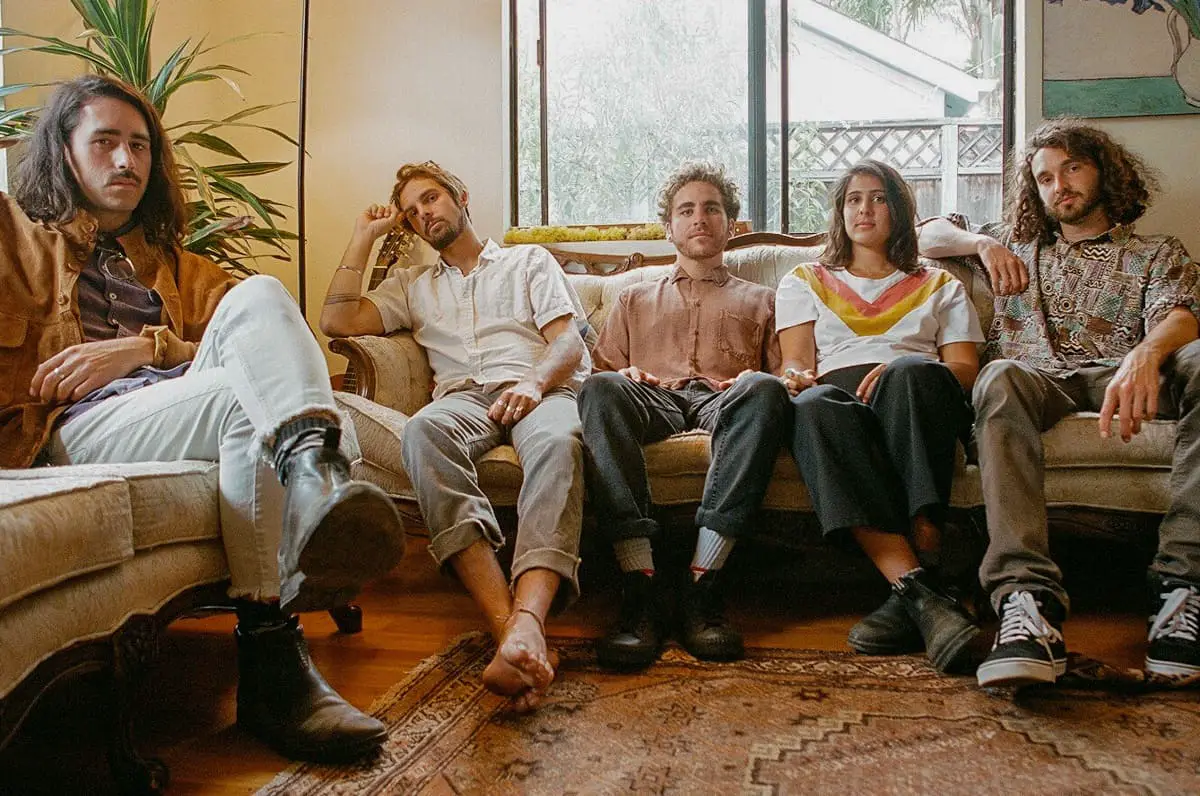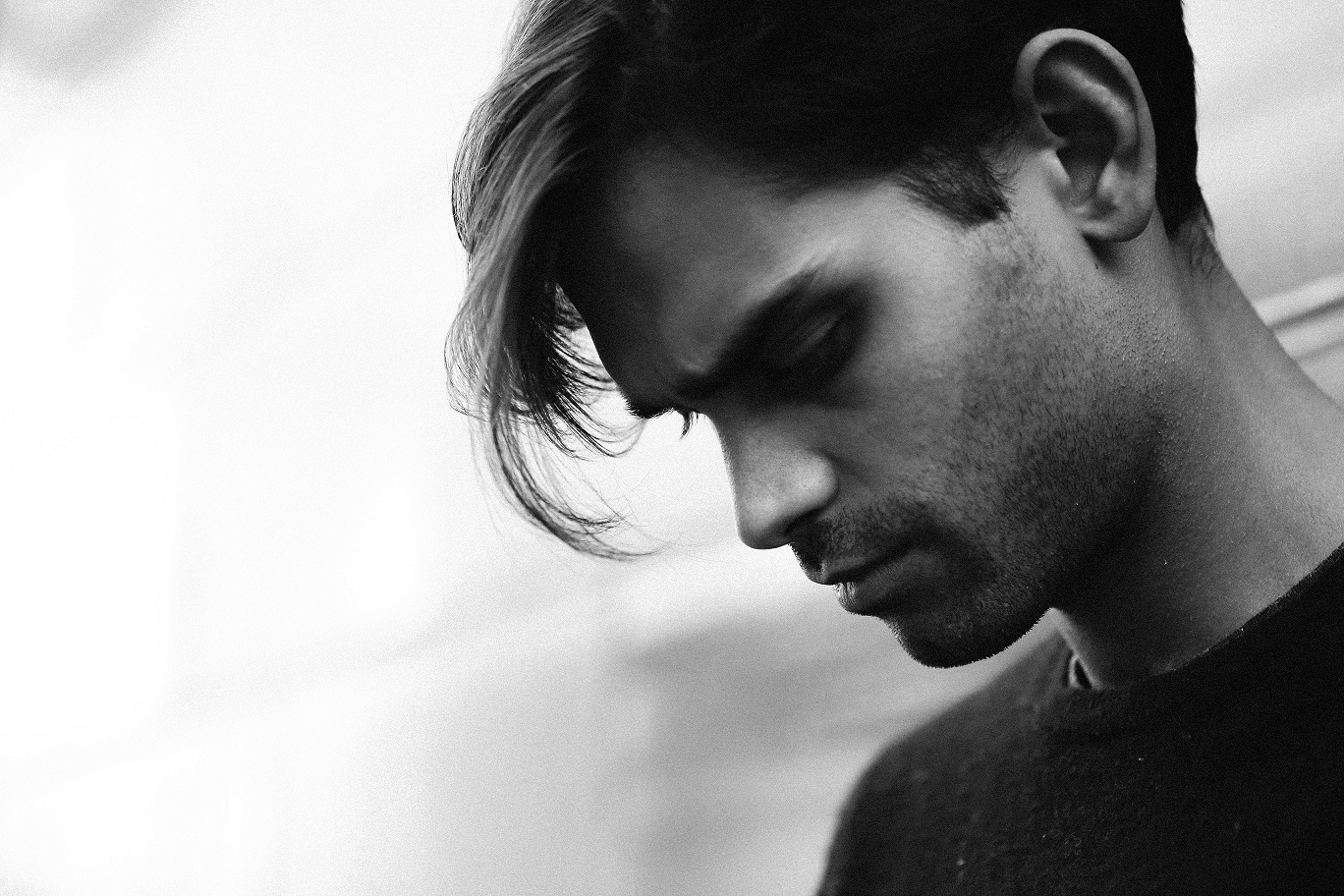‘One World,’ The Wailers’ first all-new release since the 1990s, thrives on the creative ingenuity of Aston Barrett, Jr., Emilio Estefan, and other key figures in the Caribbean musical landscape.
The message of Bob Marley and the Wailers is still here, man. And we want people to know that this new message from The Wailers is to stand firm in the badlands.
Many fans are familiar with The Wailers in the context of their run as the supporting band for Bob Marley.
Over a nearly 20-year span beginning in 1963 — with Marley joining forces midway through — these Jamaican reggae stars churned out 13 studio albums, toured across the globe, and produced a string of what remain the most enduring and recognizable hits in their native island’s history.
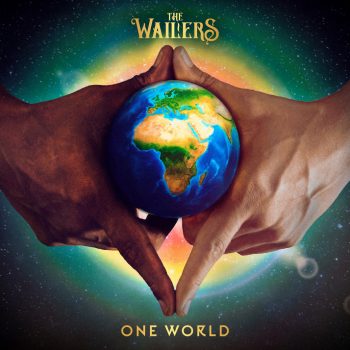
What is less common knowledge is the fate of The Wailers Band following Marley’s death by cancer in 1981. Although various members were added and lost as time went on, the band continued to perform as a unit, putting out another three LPs in the 15 years after their iconic front-man passed away. While their busy tour schedule has long offset their lack of new material, that balance finally shifted on August 21st when The Wailers released One World, their first LP of the not-so-new century and their debut release on Sony Music Latin.
An indispensable factor to The Wailers’ latter-day successes has been Aston Barrett, Jr.
Barrett’s father and uncle – Aston “Family Man” Barrett and Carlton “Carly” Barrett, respectively – were two prominent members of the group in its 1970s heyday. Aston, Jr. has honored their musical legacy, serving as the lead drummer and bassist for The Wailers and co-founding his own studio, BAD Lions Production & Studio. He also scored a key victory by bringing the acclaimed Emilio Estefan onboard for The Wailers’ comeback project. Estefan wrote and produced much of One World at his Crescent Moon Studio in Miami, including the altruistic lead single “One World, One Prayer,” which fuses Jamaican and Cuban flavoring in a manner long familiar to The Wailers.
One world, one prayer
It doesn’t matter what you believe
Some things have to change
One world, one prayer (One prayer)
Give me, give me, give me some love
Forget about the hate
In an interview with Atwood Magazine, Barrett, Jr. shared his thoughts on The Wailers’ return to the studio and how his family members and colleagues have guided his own fortunes as a musician.
The lyrics represent peace, love, and unity, and that’s what we have to keep achieving. We have to live what we preach, you know. We’re human and we’re not perfect, but we still have to strive to be perfect in life and to be even better than we thought we could be.
— —
:: stream/purchase One World here ::
Stream: ‘One World’ – The Wailers
A CONVERSATION WITH ASTON BARRETT, JR.

Atwood Magazine: Most people are familiar with the Wailers due to their run with Bob Marley in the 1970’s. In what ways does this current incarnation of the group pay homage to its most famous era while also maintaining its own distinct, 21st Century identity?
Aston Barrett, Jr.: The sound is still there. That’s the thing with this group. My father, Aston “Family Man” Barrett, has preserved that sound for many generations. It was passed on to me. Every member of the band is either [a blood relative] or a student of one of the members that played with Bob Marley. Because of that, they know all of the right frequencies and the right feels of our music.
Whenever we rehearse, I’ll go over to everyone individually and help them to understand the way the Wailers should sound— how to create goosebumps when they play. When we blend everything together, that’s how our traditional sound is achieved. So yeah, we still have the same sound as before, but technology has changed since the ‘70s. We just have to make our music work with the digital tools that we have today.
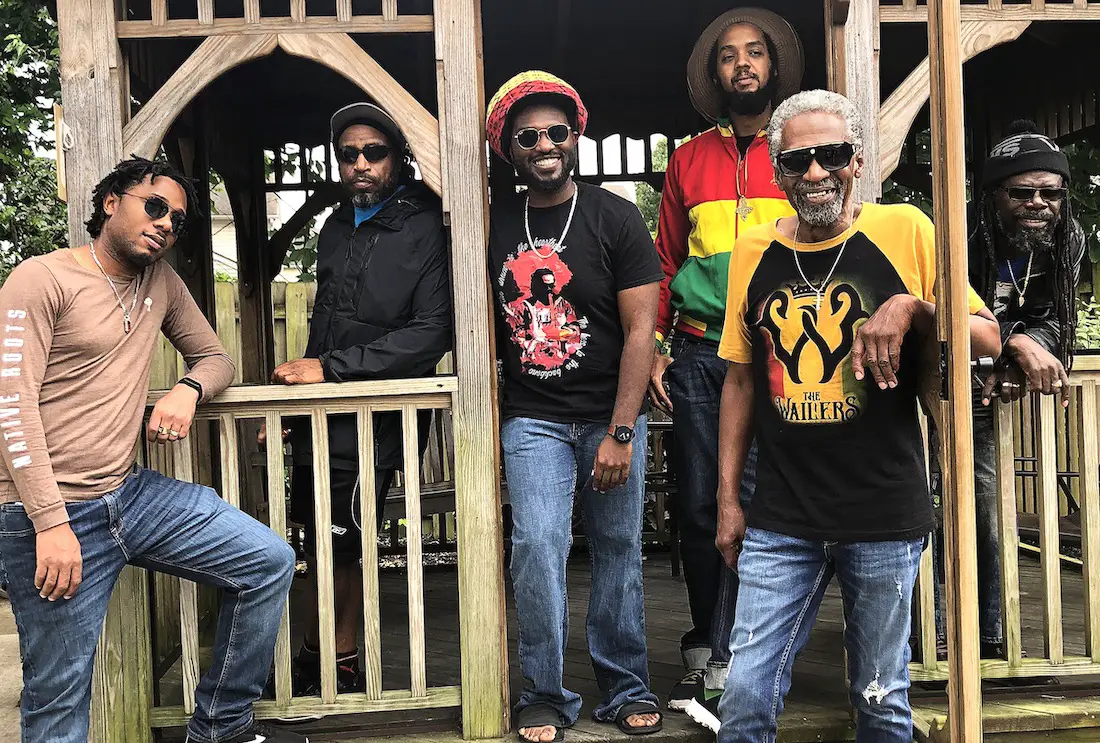
You’re described as the person who is “in charge of keeping the flame of the band alive,” according to the press release we were sent. What sort of philosophy do you bring to that role?
Aston Barrett, Jr.: It’s an honor and a privilege to do it. I don’t see myself as a boss, I see myself as a leader. A boss would use their power to manipulate anything or just do what he wants to do; a leader helps to bring together everybody who’s working around him and to encourage everyone. A good leader shows everyone hope and gives them hope.
Even when things are not 100%, the way a leader leads makes people want to be a part of everything and understand the way of his music. It’s not music that was born from fun— it was actually born from a lot of struggle. You have to understand leadership and take it very seriously. I would consider myself more of a leader in that sense.
How did the new single “One World One Prayer”— a highly collaborative piece with several featured artists — come together? What is the message of the song?
Aston Barrett, Jr.: Emilio Estefan wrote the song about two years ago and brought it to us. It’s basically a song about positive energy and overcoming violence. “We’ve all got to come together and figure this thing out,” we’re saying. With the global pandemic going on, that message has become especially meaningful for today.
The lyrics represent peace, love, and unity, and that’s what we have to keep achieving. We have to live what we preach, you know. We’re human and we’re not perfect, but we still have to strive to be perfect in life and to be even better than we thought we could be.
It’s been over 20 years since The Wailers last released a studio album (1997’s My Friends). What does it feel like to be finally releasing new music after such a long time? What do you hope this new album will teach listeners about the evolution of the group over recent years?
Aston Barrett, Jr.: After Bob Marley passed away, the group didn’t really have the same push as before. They used to have Chris Blackwell and Esther Anderson [two of the founding members of Island Records, where The Wailers were once signed to] and a lot of other people that were supporting them. One World is the first well-produced album we’ve made since then, where we actually have a producer, management, and record label behind us, like what Bob had back in the day.
Bob had wanted to work with Quincy Jones, but that didn’t end up happening. So my dad was telling me, “You guys actually have a better opportunity than what we had with Bob. We wanted Quincy and we couldn’t get him, and now you guys have Emilio and a record company.” So it’s like, “Wow,” you know. It’s amazing. It feels really good. And that’s why we’re able to reach where we can reach.
The Wailers’ message is really important. We want to show people that we’ve evolved but that we have to stick to our roots. Anything that we do, you have to hear The Wailers’ frequency. When I say “Wailers,” I take it very, very seriously. The Wailers’ name means so much to everyone around the world. It’s not something you can play around with.
Anything that we do, you have to hear The Wailers’ frequency. When I say “Wailers,” I take it very, very seriously. The Wailers’ name means so much to everyone around the world. It’s not something you can play around with.
You guys tour extensively, performing over 150 shows a year. What’s it like to be on the road so often? How does the band develop while it’s on tour?
Aston Barrett, Jr.: We want to get back on the road, but we also want to reach different audiences. The greatest thing about Bob Marley and the Wailers’ music is that it has no category. It’s not old, it’s not new. It’s just there, you know?
As we tour, we mostly want to reach our young audience and show them the music of our roots. We want to create goosebumps. And we want to keep evolving as we go along, because the world is evolving as well. My father told me, “If you listen to every Bob Marley and the Wailers album, they were always evolving.” Everything that was on the radio, they were incorporating that into their sound. Songs like “Could You Be Loved?” were the sound of that time. “It’s the kind of beat that was going around,” my father said. In that spirit, we want our music to continue reflecting the sounds of the current moment.
Collaborating with Emilio was amazing, because Emilio understands the Latin world and Bob Marley and the Wailers’ music was also influenced by music from Cuba. By linking up with Emilio, I’ve been able to learn where my uncle and my dad got their style from. We got to put a lot of that same influence into this album, while also achieving a sonic quality that the Wailers didn’t really have, because of their limited budget.
Emilio is a mentor to me— he’s taught me a lot and I’ve learned so much from him. He respects the music so highly. He let me work, and I let him work, and it’s great. We can’t wait to get back on the road and show people this new sound that we have. We want them to get goosebumps, right?! Good goosebumps!
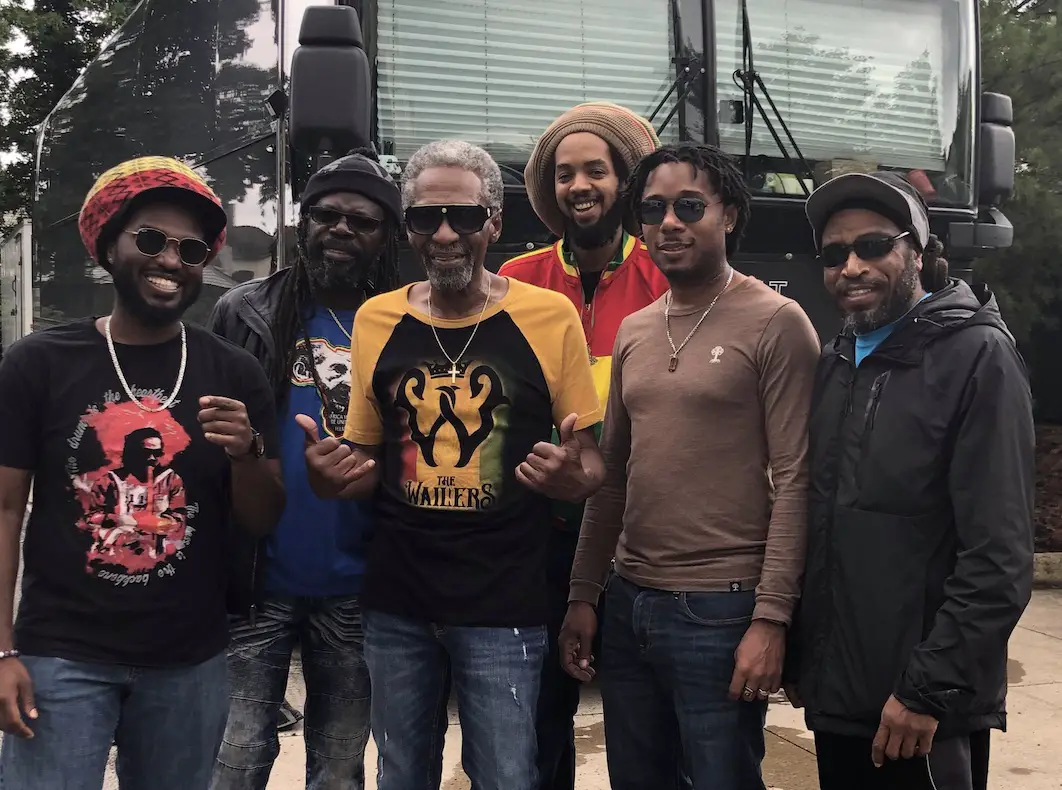
What is your personal background as a performer like? What drew you to the bass and the drums, of all the instruments out there?
Aston Barrett, Jr.: The bass is my real instrument, because of my father. I started learning the drums when I went to a school for performing arts. I was in three different bands and we had a lot of gigs. I had a jazz bass tutor and a jazz drummer tutor, and that’s how I learned to play those instruments.
My father told me that if I wanted to master his style of reggae, I had to learn jazz, because jazz is free-form music. You learn how to take any note and make it right. In reggae, if there’s a wrong note, it won’t work; in jazz, you could make it work. On your own, you can interpret anything in your own way, and that’s why you could say my uncle and my father’s sound is very different from a lot of other people’s.
My father and my uncle never really got that deep into jazz, but they took different elements from jazz, R&B, funk and other genres, and created their own style from them. A lot of their style draws upon [traditional Jamaican genres] mento, ska, and rocksteady, of course. I would say I mostly hear samba in their style as well.
Musicians from Cuba used to come over to Jamaica, and Bob Marley used to watch them a lot. I wanted to learn the Wailers’ sound, so I had to learn about all of the genres that had influenced them. So my father taught me everything that he knew. He made sure that I went to a good school and basically tried to give me opportunities that he never had. That’s what every generation needs to do to its children.
My father taught me everything that he knew. He made sure that I went to a good school and basically tried to give me opportunities that he never had. That’s what every generation needs to do to its children.
What have been some of the most memorable creative projects to which you have contributed?
Aston Barrett, Jr.: The first time I went into the studio with my father was amazing, man. We worked with this guy in Colorado and spent two weeks in a house up there with a studio next door. Being in the studio with the Marleys has been very memorable, too. You have all of the equipment, different engineers, different preamps, and so on… and you see how it all works together.
Stephen and Damian Marley are such fabulous producers— I got my first Grammy from working with Damian. I’ve also learned a lot from Julian Marley throughout my life— he even bought me my first guitar book so I could learn the chords. I have a lot to say about how the Marley family has supported me and how I grew up with them in the studio.
Lately, being with Emilio in the studio has been a totally different experience. I’m now working with a guy who’s won multiple Grammys and who invites all of these different celebrities to come into the studio on a regular basis. At first, you act like they’re normal people; then they open their mouths and start singing, and you’re like, “Oh, they’re not so normal!” You get to see how everyone helps each other, and that’s a great thing.
I have to give the most amount of respect to my father, Aston Barrett, and to my mother as well. She may not be as famous as my father, but she still deserves a lot of credit. You always have to encourage your parents when they do good things for you.
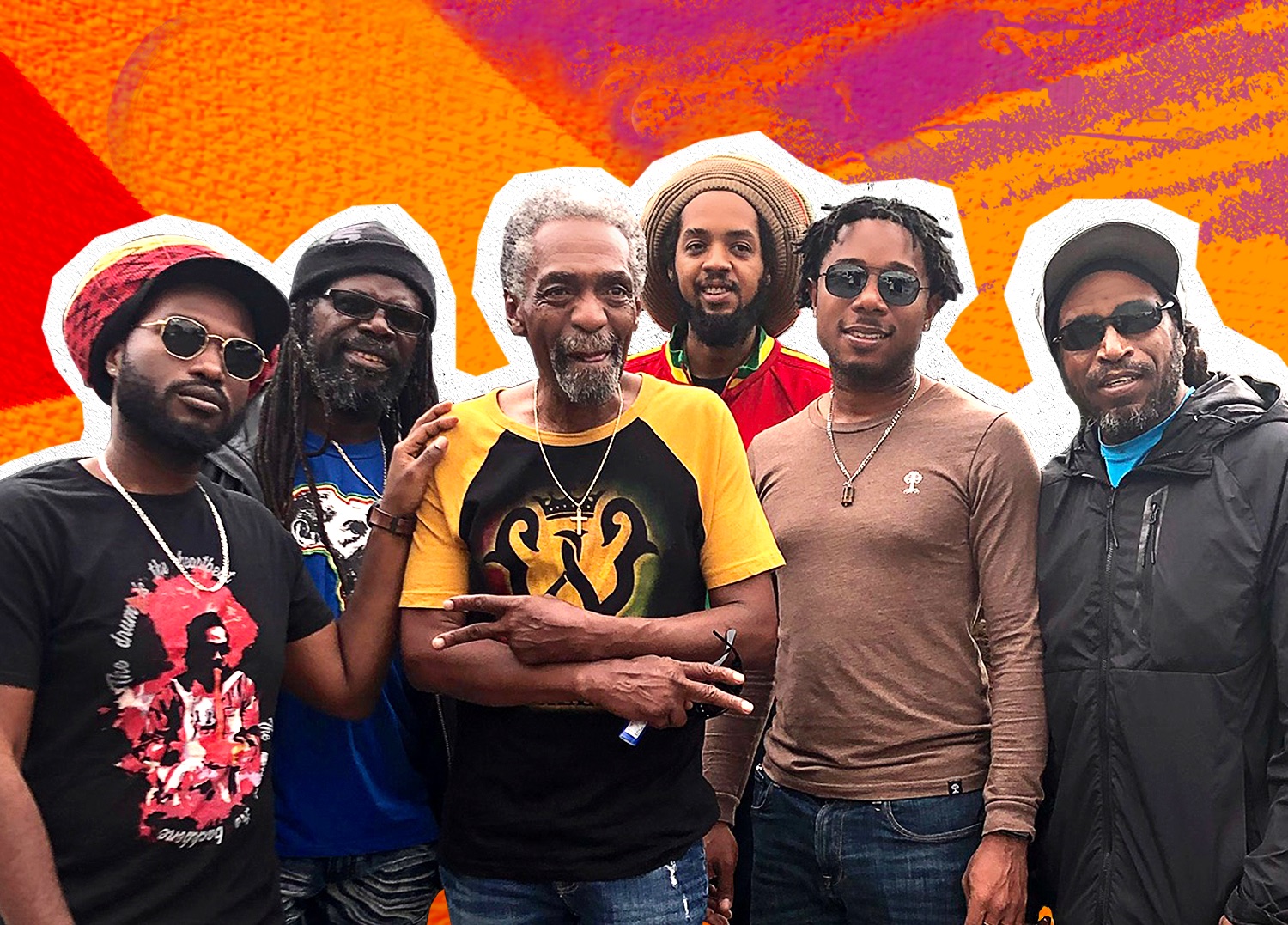
How has being the owner of BAD Lions Production & Studio been fulfilling for you as an artist?
Aston Barrett, Jr.: Bad Lions Studio is great, man. That was one of the first projects I started out with. I didn’t have a kid or any other responsibilities, really, so I started saving up for a whole bunch of equipment. But I didn’t just buy equipment like that— I visited studios and saw what did or didn’t work. I studied different preamps, snare drums, equalizers and speakers. After I did my research, we were able to start investing in a studio. I have to give [my co-founder] Alaina Reed a lot of credit. She’s very business-minded.
It feels great being the co-owner of Bad Lions Studios, and we still work out of it regularly. I try to capture the original sound that they had back in the day with Bob Marley & the Wailers. Many of their records that I liked were actually recorded at Harry J. Studio in Kingston. So I studied certain frequencies from that studio, as well as ones from Studio One and Channel One Studio [two other leading Jamaican record labels.] Then I created my own frequency and sound. That’s why Bad Lions Studios sounds the way it does, you know? It sounds really nice and big.
I get a lot of inspiration from great engineers like Dennis Thompson, who used to tour with Bob Marley. A lot of people, including my father, came to the studio and helped me to tune it up. My father is the sound— let me tell you, man. I mix things with my father and it sounds like how Bob Marley and the Wailers used to sound.
If you had to introduce this album to people who might not know a lot about The Wailers, what would you say?
Aston Barrett, Jr.: We put a lot of heart into this album. It’s the product of a lot of experimenting. My father told me, “This is the first album I’m gonna let you do on your own. I’m gonna let you use the Wailers’ name. Let’s see if you pass the test.” He said, “I know you have the sound, the root sound, but could you collaborate with other artists and still preserve the sound? Let’s see what you can do.” When we finished everything under the guidance of Emilio, my father came to the studio and had a listen. He said, “I am very proud, my son.” It was kind of like Mufasa in The Lion King, you know? [Laughs]
It was good, man. A lot of people know about Bob Marley, which is great— you have to know about him, because Bob Marley is the greatest. But we want people to know about both Bob Marley and the Wailers, because that’s what Bob Marley would have wanted. I want fans to recognize Bunny Livingston and Peter Tosh— who were there with Bob from the beginning— as well as Joe Higgs, the group’s former vocal coach. Joe is actually my maternal grandfather, and his wife, my grandmother, sang on some of the Wailers’ earliest hits, such as “Simmer Down” and “Chances Are.” That means I have Wailers on both sides of the family!
But the message of Bob Marley and the Wailers is still here, man. And we want people to know that this new message from the Wailers is to stand firm in the badlands. Back in the day, we used to say, “Beat down the badlands.” But now, we’re saying, “Stand firm and help support the people who are trying to make a difference.” We don’t want to beat down anyone. We want to encourage everyone.
‘One World’ is the first well-produced album we’ve made since then, where we actually have a producer, management, and record label behind us, like what Bob had back in the day.
Anything you’d like to add about your experiences with The Wailers?
Aston Barrett, Jr.: Touring with the Wailers has taught me a lot about different cultures. I’ve learned a lot more about what the Wailers mean to many people. Someone even told me they’d been contemplating suicide, but that coming to one of our shows saved their life. When I heard that, I knew our music had to be really different— it’s saved a lot of lives.
Traveling around the world and learning different cultures is also great. When you watch the news, you can learn about other countries— but when you actually go and live there, it’s different. People used to caution me against going to Russia, but after I went for the first time, I didn’t want to leave! It was one of the best experiences ever. The food, the people, and the drinks were all great— I’m not a drinker, but if I’m in a good mood, I probably will drink one beer or wine, you know.
South America definitely was awesome, too. We went to places that most people would never dare to go to. One time we traveled through the Amazon on this little boat, with anacondas, crocodiles, and piranhas all around us! Those are the struggles that we go through as we try to preserve our music and bring it to different parts of the world. Just to make people feel good, you know.
— —
:: stream/purchase One World here ::
— — — —

Connect to The Wailers on
Facebook, Twitter, Instagram
Discover new music on Atwood Magazine
? © 2020
:: Stream The Wailers ::

